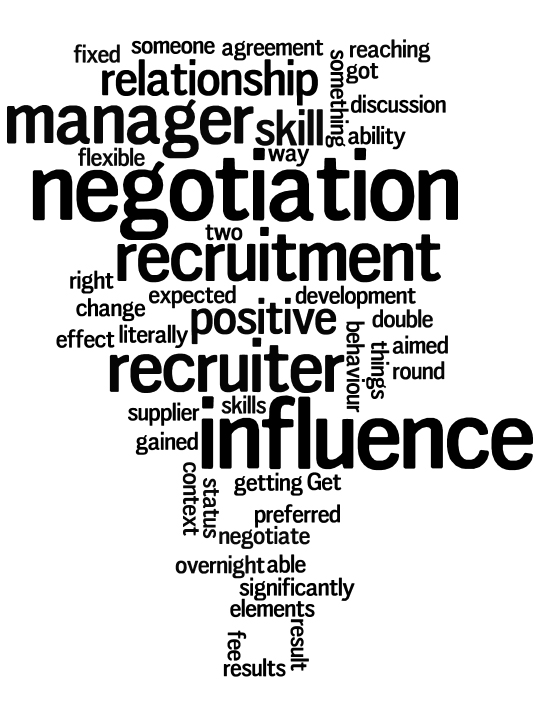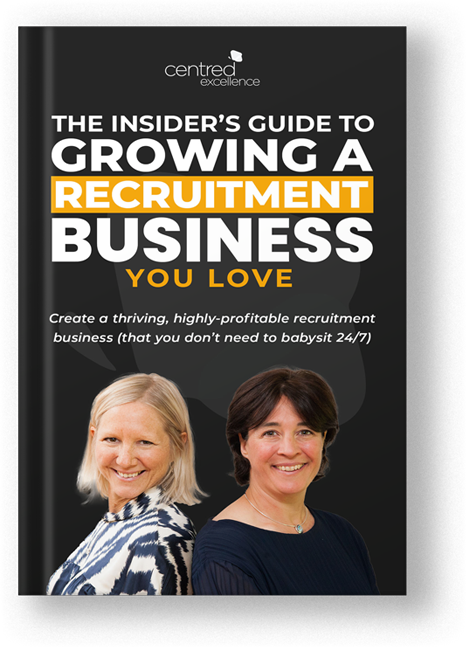As I was preparing to write this post, a few of Warren Buffet’s quotes kept playing round in my mind about how we work with our emotions. I want to share them as a way to stimulate your thinking as I move into this post about handling your emotions to elevate your results.
Here you go.
“ You will continue to suffer if you have an emotional reaction to everything that is said to you. True power is sitting back and observing things with logic. True power is restraint. If words control you, that means everyone else can control you. Breath and allow things to pass.- Warren Buffett.”
“ If you cannot control your emotions you cannot control your money-Warren Buffet.”
“ The key to success is emotional stability-Warren Buffet.”
Free Business Checkup Reveals…
“How Fit Your Recruitment Business Is For Growth…

Incredibly thought-provoking and bang on point, don’t you think? Handling our emotions in the form of building our E.I or emotional intelligence is critical for our success, and we touched briefly on the subject a while ago here.
I want to explore this again after various conversations both Katy, and I have had with our Rockit programme members.
Today business is more complicated than ever, the pressure is intense and though opportunity in the recruitment sector is at an all-time high, so is competition; which fuels our emotions as many of you will have experienced.
Alongside this, micromanaging your billers doesn’t work anymore, and it’s not uncommon to have members of your team ignore you or put two fingers up, literally, as you attempt to coach them.
Frustrating isn’t it?

Katy and I have been there, trust us! We understand that even the calmest of managers can get triggered by a situation like this.
So how can we work with our emotions to leverage all the gifts they bring without letting them take over? Let’s explore this a little more.
First though, remember emotions are a good thing……….
Emotions=Information
Let us step back a little here and consider the fact that emotions are a gift.
Emotions are information. They are telling us about how we and others are feeling about a situation. If we ignore them, we miss out on vital clues about what is going on for the other people in our team.
Remember emotions are unique to human beings and underpin the way we think whether we like it or not. Emotions are there for a reason; to help us survive.
By the way, if you haven’t looked at The Emotional Guidance Scale by Abraham Hicks, it’s well worth checking it out. It will help you identify the emotion you are feeling and what might be a better choice.
Here is something else to consider: Social psychologists have found that when people suppress emotion, they remember less. The energy taken to push down emotion is energy diverted away from listening and processing. So suppressing emotions can make us less productive at work too.
If we push them entirely to one side, we are ignoring, at our peril, the people driven and empathetic side of the decision-making process; which is never going to be a good thing.
So what do successful recruitment leaders do to handle their emotions? Here are three critical things.
They Identify Emotions In Themselves and Others

The first thing successful leaders do is they identify what they are working with.
There are many ways you can identify emotions and both Katy, and I always start with The Emotional Guidance Scale by Abraham Hicks, it’s well worth checking out. It will help you identify the emotion you are feeling and then what might be a better choice. You will find it in this book here.
As an example the fundamental emotion we are all striving for is Joy. However, as we move away from Joy, we experience other emotions like frustration to anger and finally powerlessness.
I remember the first time I came across this resource I had a real light bulb moment. No wonder then if you are feeling powerless and a well-meaning friend or manager says “You need to cheer up and be more enthusiastic!”, that you feel distraught.
It’s quite a challenge to move our emotions so fast.
So how can we tell the emotions someone is experiencing? Body language.
Albert Mehrabian, currently Professor Emeritus of Psychology at UCLA, has become known best by his publications on verbal and nonverbal messages. His research revealed that the way we communicate is dominated by body language and voice and tone to the tune of 93%, with words making up a measly 7%.
Free Business Checkup Reveals…
“How Fit Your Recruitment Business Is For Growth…

They Manage Emotions

The ability to manage emotions doesn’t mean putting feelings on hold, ignoring them or never acting emotionally. What it does mean is that you integrate feelings into your decision making and behaviour in a way that is constructive and useful.
Recruitment leaders who are good at this can think clearly when experiencing intense emotions.
Their emotions are inputs to decisions and behaviours, not drivers. They value feelings without overvaluing them.
When Katy and I ‘feel’ emotional we ask ourselves a few key questions which help us to realign.
Here you go:
- What’s happening here?
- What have I missed or what data have I missed that will help?
- What’s can I do next?
Emotions and business growth are so interconnected; fascinating isn’t it?
How do you fare on these critical areas? Want some support? On our range of programmes here at Centredexcellence, we help you develop in all areas of your performance including developing your E.I. Want to know more then get in touch by emailing us here.
Warm regards,
Nicky and Katy
P.S. Have you downloaded our latest report yet? High performing consultants are the lifeblood of any successful recruitment organisation. The challenge starts when your recruiters underperform. There is a solution, and I cover it in-depth in my latest ebook; How to Convert Your under Performers to Consistent Billers in 14 Days or less. You can download it here.









